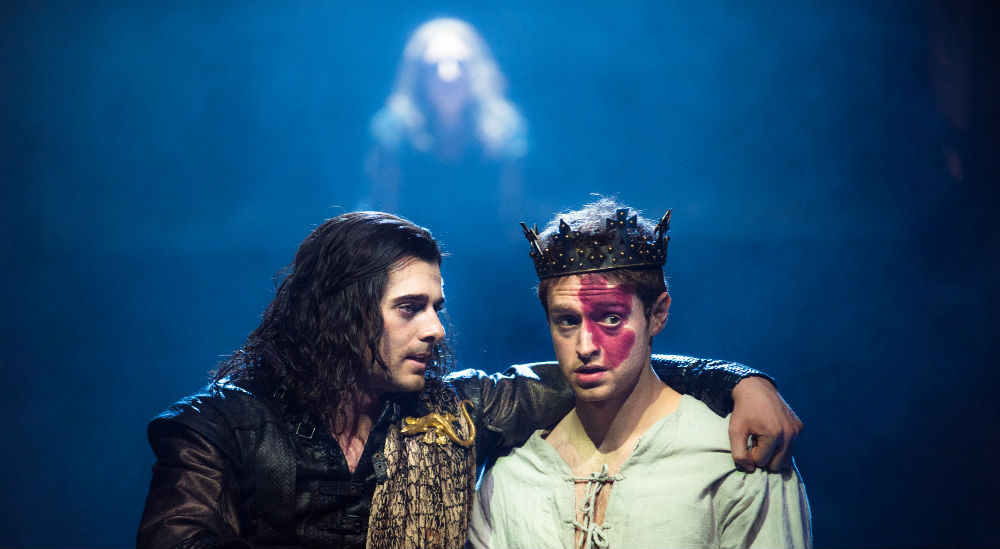Festival Theatre – Adelaide Festival Centre, Tue 1 Mar
Beginning a few years after James I ended, the second instalment in this grand trilogy introduces audiences to James II, the much fought over boy-king abandoned by his mother to the unscrupulous Scottish court and scheming lords who would control the boy and his crown. The young king’s world is a nightmare of violence, fear and loneliness as greedy clans scheme atrociously for wealth, lands and power.
Daniel Cahill transforms before our eyes, from a frightened child finding refuge from his nightmares in a trunk, to a damaged youth still struggling with those night terrors and finally, a driven monarch intent on reclaiming his life and his kingdom, whatever the cost. By his side is wife Mary played by Rosemary Boyle after initially playing his mother earlier in the play. Changing accents and nuances meant that there was no suspension of disbelief required as she handled both mother and teenage girl with great skill.
This play is the darkest of the three, the subject matter a gripping saga that kept the audience entranced at all times. As the king’s only friend, Andrew Still delivers an extraordinary performance as William, son of Balvenie, a particularly brutal member of the Douglas clan played with relish by Peter Forbes. As he falls victim to a violent, bullying father, William is poisoned with jealousy, arrogance and greed – virtues that set the stage for confrontations between family and friends alike. A brooding sound and lighting design creates the perfect emotional platform from which the audience watches with morbid fascination as the strongest of friendships crumbles before our eyes to its deadliest of conclusions.

As with James I and II, the final instalment in this ferocious series of Scottish kings picks up a number of years after the last play has ended. There is a new king and the atmosphere is altogether lighter and brighter than its predecessors. James III (Matthew Pidgeon) is a self-absorbed, egotistical monarch, more interested in the pleasures of the flesh than the drudgery of parliament. The beauty of playwright Rosa Munro’s characterisation shines as Pidgeon peels back the kingly layers of James’ multi-faceted personality. While we at first dismiss him as a selfish playboy, it becomes gradually clear that James III has a much darker side than first appears. Pidgeon’s performance was as manic as it was controlled and an absolute joy to watch.
Likewise was the especially strong performance by Malin Crepin in the role of Queen Margaret – a fascinating study of the tough, resilient woman who stepped in to rule when her husband could not or would not. Her lengthy speech as she rouses the parliament for support was completely mesmerising. Special mention needs to go to Blythe Duff as the king’s Aunt for her masterful comedic timing throughout the play.
Munro has crafted an enthralling historical record of Scotland’s first three kings using a decidedly contemporary voice that serves to enhance our understanding and enjoyment of this oft brutal yet nonetheless intriguing time and place. Our ongoing fascination with the current royals along with popular texts such as Game of Thrones is testament to our fascination with courtly life, love, power and intrigue. Adelaide may have farewelled The James Plays Trilogy last night however an epic event such as this will be difficult to forget.
Rosie van Heerde
Images courtesy of Tommy Ga-Ken Wan
The Clothesline Rating...
Rosie van Heerde
An epic that will be difficult to forget.




